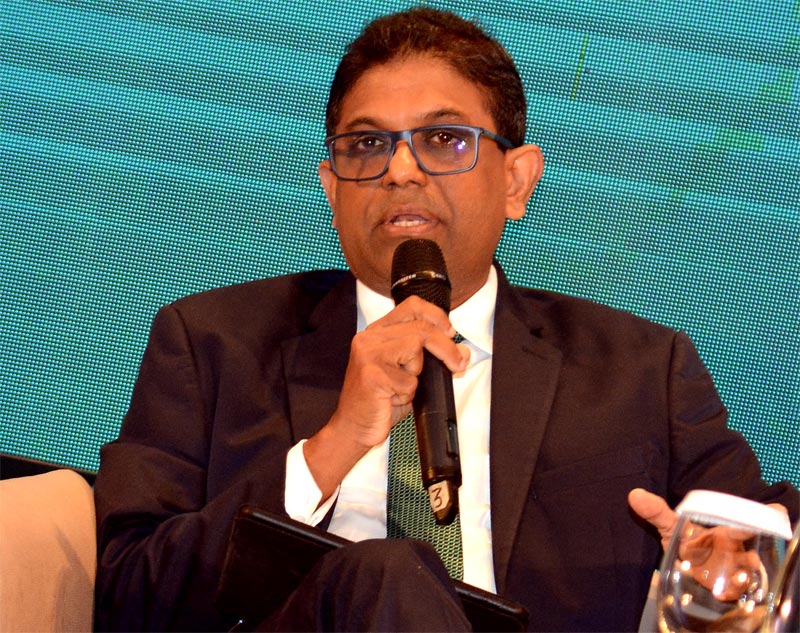Sunday Feb 22, 2026
Sunday Feb 22, 2026
Thursday, 30 November 2023 02:11 - - {{hitsCtrl.values.hits}}

Standard Chartered Bank CEO Bingumal Thewarathanthri – Pic by Upul Abayasekara
By Charumini de Silva
Standard Chartered Bank Sri Lanka CEO Bingumal Thewarathanthri yesterday underscored the need for a bankruptcy court in the country to address debt repayment challenges faced by individuals and businesses.
Speaking at the Ceylon Chamber of Commerce ‘Sri Lanka Economic Summit 2023’, Thewarathanthri explained that having a dedicated court for bankruptcy proceedings would provide a structured and fair mechanism for resolving financial difficulties preventing the premature demise of businesses without exploring alternatives.
“A bankruptcy court will ‘not kill’ a business, but rather facilitate a structured and fair resolution of financial difficulties faced by individuals or entities,” he said.
Thewarathanthri said in cases where a business cannot recover and liquidation is the only viable option, the bankruptcy court’s role is to handle the orderly distribution of assets to creditors. The process is designed to provide a legal mechanism for addressing financial distress and finding the best resolution for all parties involved.
“This does not mean that banks are after all the assets. But clients must also understand that these loans are obtained at lower interest rates than present value and it needs to be restructured and be fair by the creditor too,” he added.
Addressing concerns about the stigma attached to terms like bankruptcy and insolvency in Sri Lanka, Thewarathanthri suggested considering a different name for the legal framework to make it more acceptable within the local context.
“Bankruptcy and insolvency are considered taboo words in Sri Lanka,” he added.
Highlighting the importance of learning from neighbouring countries, he expressed support for exploring frameworks for insolvency laws based on successful outcomes in India.
Thewarathanthri recognised the complexity of introducing an insolvency law, particularly the need for careful consideration to avoid negative impacts on businesses.
Acknowledging the stress in the financial system due to post-COVID moratoriums extended to businesses, he disclosed that non-performing loans (NPLs) in Sri Lanka have seen a slight decrease from 7.8% to 7.2%. However, he cautioned that certain sectors, including tourism (33%), transport (30%) and arts and entertainment (20%), are facing significant challenges and may struggle to recover.
Extending support for the insolvency framework in the country, Thewarathanthri outlined the importance of a thoughtful approach to safeguard businesses and support economic resilience.